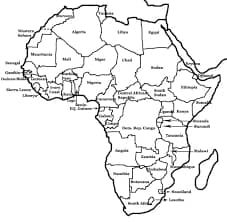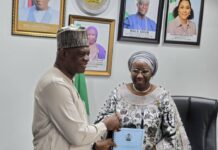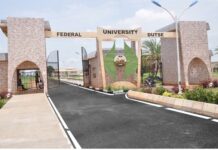The 2025 edition of the Africa Sovereign Investors Forum (ASIF) ended in Abuja with a unified call to transform the continent using its sovereign wealth assets. Convened by the Nigerian Sovereign Investment Authority (NSIA), the summit drew political leaders, sovereign fund managers, and private sector stakeholders under the theme: “Leveraging African Sovereign Wealth Funds to Mobilize Global Capital for Transformative Development in Africa.”
President Bola Ahmed Tinubu, represented by Vice President Kashim Shettima, declared the forum open with a direct message to participants: “The time has come for African nations to harness our collective sovereign wealth as engines for pan-African prosperity.” This statement set the tone for the two-day event, which emphasized the role of sovereign funds in bridging Africa’s development financing gap.
A major outcome of the forum was the launch of the ASIF Investment Platform, an ambitious initiative targeting $50 billion in blended finance for infrastructure, agriculture, and renewable energy projects by 2030. NSIA’s Managing Director, Aminu Umar-Sadiq, also announced that African sovereign wealth funds will allocate 30% of their portfolios to climate-resilient investments within the same period. This builds on Nigeria’s existing $1 billion climate guarantee facility and signals a coordinated push toward sustainability.
Umar-Sadiq described the initiative as a turning point for African economies, noting that sovereign wealth funds must evolve from passive asset managers to active nation-builders. “By uniting our sovereign wealth, we’re not just preserving assets but building Africa’s future,” he said.
During a fireside chat, Farouk Gumel, Vice Chairman of Tropical General Investments (TGI) Group, highlighted the disconnect between international climate discourse and the needs of African farmers. He observed that many farmers are not concerned about global conferences like COP29, but about rainfall and survival. Gumel warned that the recent floods across several regions may force a shift to dry-season farming, urging stakeholders to focus on adaptive measures that combine immediate relief with long-term planning.
He also stressed the importance of understanding agricultural value chains, explaining that investments in the sector require clarity on production cycles, storage timelines, and market dynamics. “The seed merchant sells at planting, the farmer uses the seed over 3 to 4 months, the processor converts the harvest to food, and the distributor might hold it for an uncertain period. These timelines matter,” he said.
Gumel emphasized that data is at the heart of unlocking agricultural finance, describing it as a commodity in itself. He challenged sovereign wealth funds to lead in grassroots data gathering, noting that such information is essential to attract credible investment into Africa’s food systems.
ASIF 2025 expanded its reach with the addition of Ghana’s Petroleum Fund and Zimbabwe’s Mutapa Investment Fund, raising membership to 17 countries. This growing coalition reflects a deepening belief that Africa’s transformation must be driven from within, using its own capital as leverage.
To ensure continuity, the forum established three specialized working groups focused on improving data infrastructure, boosting agricultural development, and accelerating access to climate finance. These groups will track the implementation of key commitments and shape new investment models in the lead-up to the next ASIF Council meeting, scheduled for late 2025.
ASIF 2025 may be over, but the message from Abuja was clear: Africa’s sovereign wealth is no longer just about savings—it’s about strategy, scale, and the future of the continent.














